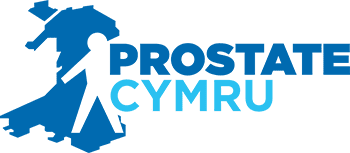Elective report by Sarah Rangan – Recipient of the Ray Williams Travelling Fellowship
Vanuatu is a Y shaped chain of islands in the South Pacific. It is located 1750km east of Australia, 500km north-east of New Caledonia, 800km west of Fiji and 170km south of the Solomon Islands. Its land area comprises 83 islands, most of which are the summits of mountain ranges rising from the deep ocean floor. The largest islands are Espirito Santo, Malekula and Efate. Vanuatu is on the Pacific ‘Ring of Fire’ and as such, there are frequent earthquakes and volcanic eruptions.
The life expectancy of children born today is 65.6 and 69 years for males and females respectively. Health services suffer from a lack of facilities, but more importantly, trained staff. There are three hospitals in Vanuatu. Vila Central Hospital – in Port Vila the capital (Efate Island) – is the biggest of these hospitals.
In addition to the three hospitals, there are a range of rural clinics which travel around islands visiting villages and providing care such as maternal care, immunisations for children, health education, as well as being able to perform simple interventions for minor complaints. There are also private clinics which cater to the needs of richer Ni Van people and expatriates as well as tourists. Some of these are supported by charities and foreign aid. ProMedical Vanuatu is one such charity which provides ambulances and pre-hospital care as well as a pressure chamber on the main island.
The main health problems in Vanuatu include both chronic disease such as diabetes as well as infectious diseases such as malaria. Diabetes is seen to be a significant problem. WHO estimated the prevalence as being 6000 in 2000, and predicted to triple to 18,000 by 2030. The reliability of these estimates is questionable and are most likely underestimates. There is no screening for diabetes, therefore it is usually diagnosed upon presentation to the health services with a complication of the disease, such as gangrenous ulceration of the lower limb.
I completed my elective period in Vila Central Hospital. It has four main departments including surgery, medicine, paediatrics and obstetrics and gynaecology. It receives patients for general, emergency and specialist care from all islands in Vanuatu. I also spent some time in Medipole which is a smaller private unit with one doctor who provides primary and antenatal care and deals with minor injuries.
I would say my most enjoyable part of the elective was the time spent in surgery in Vila Central and the time spent in Medipole Private Hospital. The theatres in Vila Central were very well structured however there are only two general surgeons for the whole island. Therefore, cases are very varied and you often see examples of very advanced disease. We also regularly got to see emergency surgery which is less the case on regular placement as a lot of operations are scheduled in the NHS. Among the most interesting cases was a lady with a very large fungating breast tumour who did not have access to chemotherapy as there is none in Vanuatu. This gave reason to reflect on the differences in quality and accessibility of healthcare in different regions of the world. There was also a gentleman who presented with a 5cm thorny plant stalk stuck up his nose. It took three procedures to remove and it was very interesting to follow this case as a minor event potentially could have led to major complications.
During my time I spent a fair amount of clinical hours in the company of general surgeons who also completed urology caseloads. They were happy for my partner and myself to clerk and medically advise patients on prostate care. In Vanuatu, as the life expectancy isn’t as high, prostate health isn’t a priority in the community and tests aren’t readily available in hospitals. However progress is being made as the Australian Surgical Pacific Island Programme has established the first yearly TURP service in the pacific and make regular urology visits. In Medipole there was also a great variety of patients and it was interesting to see a different healthcare delivery system. It was also very impressive to realise how generalist and broad the services offered by one practitioner can be.
I can safely say that this elective corresponded to the expected outcomes I had set prior to the trip. I benefitted the most from receiving clinical experience in a bilingual environment. This was the focus of choosing to spend my elective at this particular destination and although English is more widely spoken in Port Vila, I was not disappointed as I encountered many French speaking patients.
I also benefitted from being in a distant region, very far removed from home which had a lot to offer in terms of differences in the culture of patients and doctors. We learnt a lot about medical training (or lack thereof) in Vanuatu and how interns all went to university and specialise abroad. This means there is great diversity of experience in the one medical team. Furthermore, patients in Vanuatu go through very different trials to access adequate healthcare than in the UK. This is a learning point as we learnt how accessibility affects quality and delivery on a global scale.
I received a bursary from Prostate Cymru, therefore my partner and I decided to complete a Urology based project. We launched a health awareness campaign for patients on how to recognise and deal with symptoms of poor prostate health (hyperplasia, cancer). As I speak two of Vanuatu’s three national languages we delivered this information in the form of a poster in French and English. This poster was hung in the main outpatient department with permission from the senior sister and surgeons. Every patient waiting for an outpatient appointment in the hospital was therefore able to read the poster.
In terms of extra curricular activities the country reflects the beauty of the South Pacific region, there are lots of marine based activities and very interesting tribal and colonial culture. The most unmissable things we did were to walk up to the rim of an active volcano (Mount Yasur), and to experience the Naghol Land Diving ritual which only takes place two months of the year in Pentecost Island.










